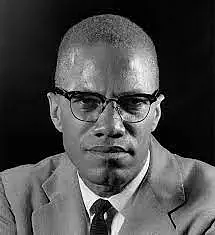How The Foster Care System Shaped Malcolm X’s Fight For Black Liberation
The story was originally published by The Observer with support from our 2025 Child Welfare Impact Reporting Fund.

He was just 6 years old when his father died. His mother was left to care for him and his seven siblings by herself.. Louise Little was a proud Black woman, but she went on welfare to feed her children and keep a roof over their heads.
This meant monthly visits from caseworkers, most often white women who acted condescendingly, treating recipients with contempt and making judgments based on prejudice.
“They acted and looked at my mother and us and around in our house in a way that had the feeling, at least for me, that we were not people,” the boy said in adulthood. “They acted as if they owned us … as if we were their private property.”
He called the workers “vicious vultures” who eventually broke his mother’s spirit.
“They had no feeling, understanding, compassion, or respect for my mother. Right then was when our home, our unity, began to disintegrate.”
Though she’d resisted their intrusion in the past, Louise’s children were placed in separate foster homes when she was committed to a state mental hospital.
“A judge had authority over me and all my brothers and sisters. We were children who were wards of the court. He had the full say-so over us, a white man in charge of a Black man’s children, nothing but legal modern slavery, however, kindly intentioned.”
Those were the recollections of civil rights icon Malcolm X, written in his 1965 autobiography. In it, he also talks about his experiences in foster homes and reform schools, getting involved in illegal activities from a young age and winding up in prison, before turning his life around and becoming one of the nation’s leading voices, urging Blacks to demand equality “by any means necessary.”
Malcolm X’s worldview was molded by his time in foster care and his experiences as a young Black man in America. His views helped change the course of the nation. He was assassinated Feb. 21, 1965, but “The Autobiography of Malcolm X” remains one of the most read books in U.S. prisons. It has been credited with encouraging Black men to do much-needed self-reflection, atone for their pasts, and rise above their circumstances to be assets to their families and the extended community.

